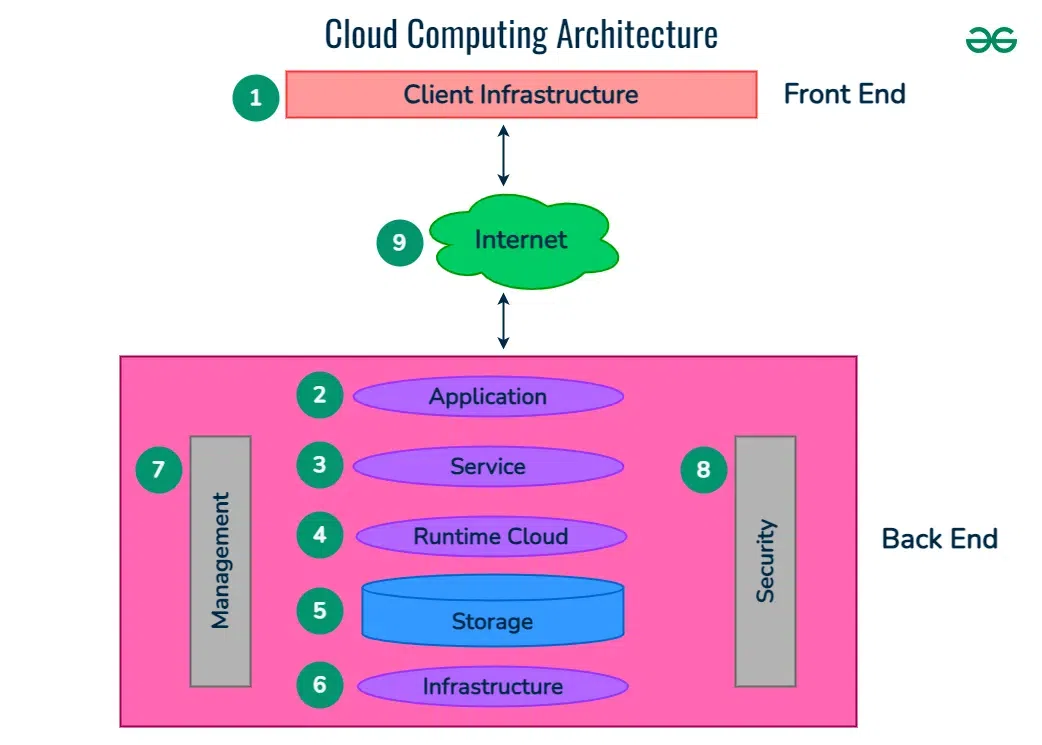Discover LinkDaddy Cloud Services for Universal Cloud Service Success: Press Release Insights
Discover LinkDaddy Cloud Services for Universal Cloud Service Success: Press Release Insights
Blog Article
Streamline IT Administration With Cloud Solutions
In today's swiftly advancing digital landscape, the function of IT administration is becoming significantly intricate. Organizations are frequently looking for ways to enhance their IT procedures to stay dexterous and competitive. Cloud services have become a feasible solution for companies aiming to boost effectiveness, lower prices, and improve total IT efficiency. By welcoming cloud technology, companies can accomplish higher adaptability, scalability, and safety and security in managing their IT facilities. But just how precisely do these cloud solutions change conventional IT management methods? Let's check out the transformative impact of leveraging cloud services on IT operations and the key factors to consider for effective application.
Advantages of Cloud Provider

Moreover, cloud solutions enable companies to improve their functional performance by simplifying procedures and reducing the moment and resources needed for handling IT infrastructure. With cloud solutions, companies can automate regular jobs, such as software application updates and data backups, maximizing IT teams to concentrate on more critical initiatives that drive company worth.

Improved Scalability and Adaptability
Cloud services supply companies with unparalleled scalability and adaptability in managing their IT resources efficiently. With cloud services, companies can swiftly scale up or down their computing sources, storage space capability, and network transmission capacity to satisfy altering demands without the need for significant in advance financial investments in equipment.
In addition, cloud solutions provide the adaptability to select from a variety of service designs, such as Infrastructure as a Service (IaaS), System as a Service (PaaS), or Software as a Service (SaaS), based on the specific requirements of the organization. The enhanced scalability and flexibility used by cloud solutions empower businesses to enhance their IT procedures and remain agile in today's dynamic market environment.
Cost-Effectiveness and Cost Savings
With the capacity to efficiently designate resources based on need, organizations using cloud solutions can see page harness considerable cost-effectiveness and understand significant cost savings in their IT operations. Furthermore, cloud services reduce upkeep prices by shifting the obligation of hardware upkeep and software program updates to the service supplier. On the whole, the cost-effectiveness and savings accomplished via cloud solutions make it possible for services to reapportion sources in the direction of innovation and development campaigns.
Improved Safety and Compliance
Enhancing the general safety pose and guaranteeing regulative compliance are paramount factors to consider for businesses leveraging cloud services in their IT management methods. Cloud company offer advanced protection measures, such as data encryption, multi-factor authentication, and automated backups, which can bolster a business's safety and security structure. These suppliers likewise comply with rigorous governing requirements, such as GDPR, HIPAA, and PCI DSS, helping businesses fulfill conformity needs more successfully.
Applying cloud solutions can enhance protection by offering centralized control over gain access to administration, monitoring, and data protection. This central strategy simplifies safety and security management and makes sure consistent application of safety and security policies throughout the company. In addition, cloud services typically offer real-time safety and security updates and patches, decreasing the threat of susceptabilities and prospective breaches.
Ideal Practices for Cloud Application
Carrying out cloud solutions efficiently calls for an organized method that includes thorough planning and diligent execution. To guarantee a smooth transition to the cloud, organizations need to start by carrying out a thorough assessment of their current IT framework and determining which workloads appropriate for migration. It is vital to establish clear goals and specify essential efficiency indications you could try these out (KPIs) to gauge the success of the cloud implementation.
One of the best techniques for cloud execution is to meticulously choose a cloud provider that aligns with the organization's requirements in terms of protection, scalability, compliance, and cost-effectiveness. Furthermore, creating a thorough migration strategy that describes the actions involved, timelines, and responsibilities is important for an effective application.
Regularly keeping an eye on and enhancing cloud resources to make sure effective performance and expense administration is one more crucial facet of cloud execution finest practices. Continual assessment of the cloud environment and remaining educated concerning updates and new features offered by the cloud provider can additionally enhance the organization's cloud strategy. By following these best methods, companies can improve their IT management and maximize the benefits of cloud solutions.
Conclusion
Finally, leveraging cloud solutions for IT administration uses countless benefits, consisting of boosted scalability, cost-effectiveness, improved safety and security, and compliance. By following ideal practices for cloud application, organizations can simplify their IT operations, automate routine jobs, and maximize source allowance. This structured technique enables IT teams to concentrate on strategic campaigns and innovation, eventually supplying value to the organization. Overall, cloud services boost operational performance and dexterity in managing IT infrastructure.
Additionally, cloud solutions offer the flexibility to select from a range of service models, such as Facilities as a Solution (IaaS), Platform as a Solution (PaaS), or Software as a Service (SaaS), based on the particular demands of the company. In addition, cloud services minimize upkeep prices by changing the responsibility of equipment maintenance and software updates to the service company.Enhancing the general protection posture and making certain regulative compliance are vital considerations for organizations leveraging cloud solutions in their IT administration approaches.On a regular basis keeping track of and enhancing cloud resources to ensure effective performance and cost management is another critical element of cloud execution ideal methods. Constant evaluation of the cloud atmosphere and staying informed about updates and new attributes this supplied by the cloud copyright can additionally improve the company's cloud technique.
Report this page